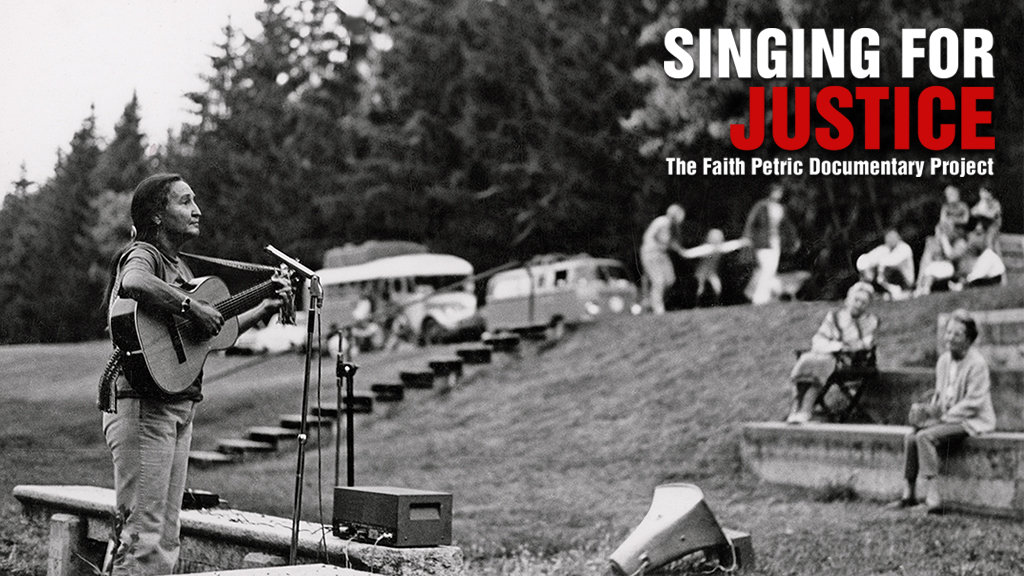
Singing for Justice
SINGING FOR JUSTICE reveals the story of Faith Petric (1915-2013), a San Francisco-based political radical, musical organizer, and joyous performer who united folk music and activism through almost a century of American social movements. Over her long and purposeful life, Petric combined group singing and progressive politics, inspiring all to take responsibility for social change, women and elders to defy stereotypes, and everyone she met to sing along.
SINGING FOR JUSTICE provides a compelling portrait of this American original–a worker, social critic, single mother, perennial protestor, and traveling grandmother who reached across generations to encourage musical and political engagement.
Told largely by Faith herself, the film draws upon a treasure trove of sources – her extensive life-long collection of photos and artifacts, performance and interview footage across the decades, and insights from historians, musical colleagues, and family members. Historical footage provides context for a life in which Faith Petric was not abstractly affected by world events but chose to make her mark upon them – from her log-cabin origins to political radicalization during the Great Depression; from her work as a Rosie the Riveter and participant in the first Greenwich Village folk revival in the 1940s to her post-war life as a single working mother in San Francisco; and from marching in Selma in 1965 to reinventing herself as a post-retirement troubadour.
Faith Petric’s story shows how committed networks of people sustain resistance to inequality and conformity in America – through speaking up and singing out. From the 1940s to the 2010s, Petric championed folk music – the music of the people – both as a singer and as an organizer of folk clubs. For over half a century she hosted the San Francisco Folk Music Club at her Haight-district home, welcoming thousands of professional and amateur musicians at bi-weekly jams. She organized the Plowshares Coffee House at Fort Mason and the still vibrant S.F. Free Folk Festival, inspiring her protegees to establish myriad non-commercial folk venues throughout the Bay Area. National and international audiences were delighted by her festival and tour performances and “The Folk Process” column she edited in the prominent music magazine SING OUT. Her sustained promotion of labor, peace, and racial and gender justice earned her not only harassment from the FBI but also a devoted following of several generations of musicians and activists.
